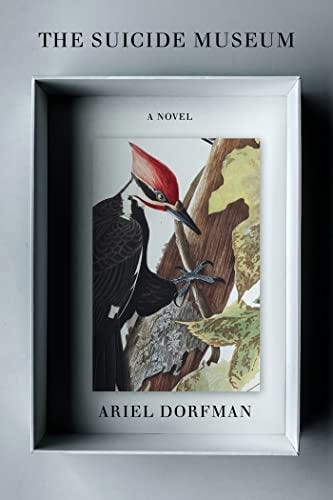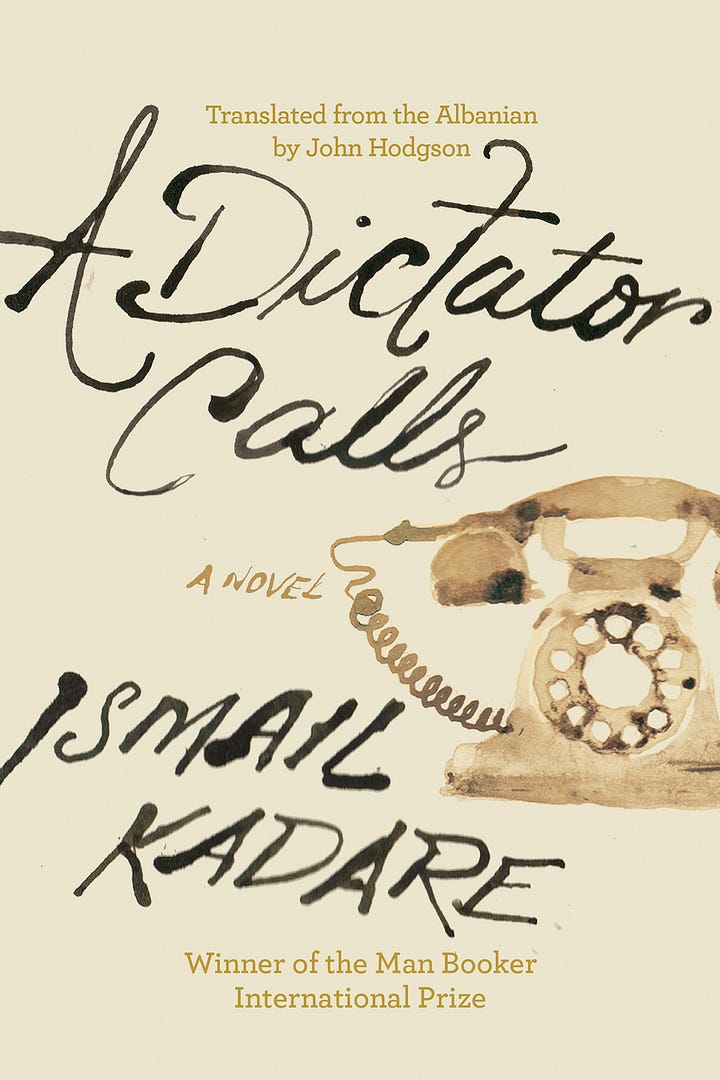

For those of you who missed it, I recently reviewed A Dictator Calls, Ismail Kadare’s latest offering in the English language, for Review 31. Check if out if you haven’t already, as it’ll provide a lot of the context and background for what follows.
Shortly after I finished writing the Kadare piece, I began reading Ariel Dorfman’s new novel, The Suicide Museum, with an eye towards eventually putting it into conversation with Lily Meyer’s excellent debut, Short War (set to release in April of next year; shout-out to A Strange Object/Deep Vellum for so graciously providing me with an ARC!). Two perspectives on the tragedy that was the Chilean coup d’etat and Pinochet’s subsequent dictatorship, each with a central mystery that, I believe, lies at the heart of these stories. But as I read The Suicide Museum, I couldn’t shake the sensation that it all felt quite familiar.1
Like A Dictator Calls, The Suicide Museum is essentially a work of autofiction,2 only instead of meticulously chronicling the misadventures of a hyper-conscious millennial as they stumble through life under late capitalism in New York or London, this “old man dictatorship autofiction” is more reflective, a “fictional memoir” if you will that reveals these elderly male authors’ enduring regrets and existential anxieties. Lifelong guilt is what underpins both; for Kadare, it’s guilt, however camouflaged by the figures of Pasternak and Mandelstam, over his comparatively privileged position within Enver Hoxha’s regime, and for Dorfman, it’s guilt over not being at La Moneda with Salvador Allende—his political and personal hero—the day of the coup. Enver Hoxha and Salvador Allende, two diametrically opposing points on the continuum of what we might call “socialism,”3 and, in their own ways, the instigators of the culpability that permeates these stories.
But Allende isn’t the dictator in this “dictatorship autofiction.”4 Instead, Pinochet is Hoxha’s tyrannical pair, on the page and in life, one who provides yet another, much darker counterpoint to the latter’s orthodox Stalinism in the form of his own orthodox free market (‘neoliberal’) authoritarianism. And this is where the biographical similarities between the two writers end. In contrast to Kadare, Dorfman’s dissident profile is far more straightforward and classic, uncompromised, his suffering pure and untainted by any unsavory association with Pinochet.5 From the time of the coup in 1973 until the return of democracy in 1990, Dorfman constantly fought from exile in Europe and the United States the good fight for his country’s freedom, gaining worldwide notoriety in the process. Dorfman is a dissident with impeccable moral credentials, the type we’re accustomed to, more Solzhenitsyn or Mandelstam than Pasternak, or Kadare for that matter.
Kadare and Hoxha. Hoxha and Pinochet. Pinochet and Dorfman. Dorfman and Kadare. The artist(s) and the tyrant(s) who will be forever linked, immortalized as they are in literature and in history.
Stylistically, Kadare and Dorfman are quite similar, as both share the same mid-late 20th century male modernist sensibility, though Dorfman is far less ‘macho’ in his portrayal/discussion of women.
Though as I said in my review, the original Albanian version of A Dictator Calls is just straight-up nonfiction, which was now published and marketed in English as fiction (for some reason).
I would legitimately love to know what Hoxha thought of Allende and the Chilean Road to Socialism, though I can probably make a good guess as to what his opinions would be.
Despite recent revisionist attempts to paint him as the Stalin of the Andes, Allende was democratic to a fault, and any centrist/conservative critique should instead focus on his inability to reign in the more radical elements of his coalition (while also recognizing that what came after was wholly inexcusable and unjustifiable, but perhaps I’m asking too much).
The closest Pinochet probably had to ‘court poets’ were Los Huasos Quincheros and Paty Maldonado. If anything, Hoxha wins on taste alone.


